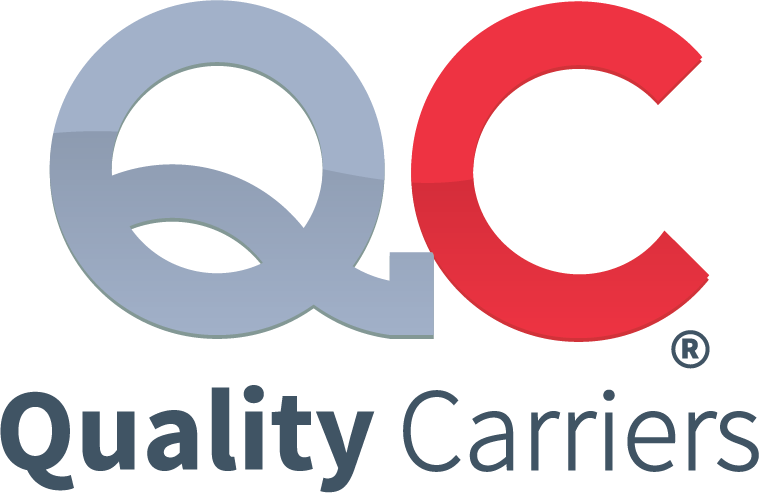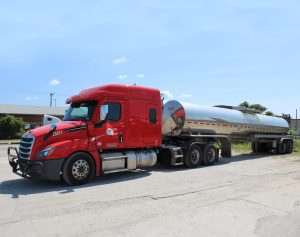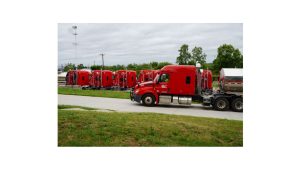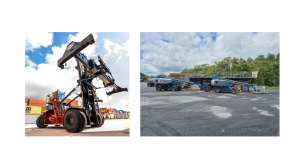Do you want to become an owner operator and take control of your own business? For many truck drivers, transitioning from a company driver to an owner-operator offers a new level of freedom, independence, and the potential for higher earnings. As an owner-operator, you are not just a driver but a business owner responsible for managing all aspects of your operation. You can choose your routes, decide what types of freight to haul, and ultimately steer the direction of your career. However, the journey to becoming a successful owner-operator is challenging. Along with the freedom and potential for increased income, this role brings a range of responsibilities.
This blog explains the essential steps to becoming a successful owner operator. If you’re ready to take control of your career and enjoy the benefits of being your boss, follow along as we explore what it takes to succeed in the industry.
What Is an Owner Operator?
An owner-operator is an individual who owns and operates their own truck. Unlike company drivers who work for a trucking company, owner-operators manage every aspect of their business, including securing loads, maintaining their vehicles, and covering all associated expenses. While this role offers more control and earning potential, it also requires significant financial and operational planning.
How to Become A Successful Owner Operator
1. Assess Your Situation and Decide if This Career Suits You
Becoming an owner operator is a significant commitment that requires careful self-assessment and planning. Before you leap, evaluate your current financial situation, lifestyle, and career goals. Ask yourself if you’re ready to handle the responsibilities of running your own business, which include truck maintenance, managing finances, and finding steady work. Consider the long hours on the road, the physical demands of the job, and the fact that you’ll need to manage all the operational aspects, from expenses to customer service. It’s essential to clearly understand the risks and rewards before moving forward.
2. Research the Trucking Industry
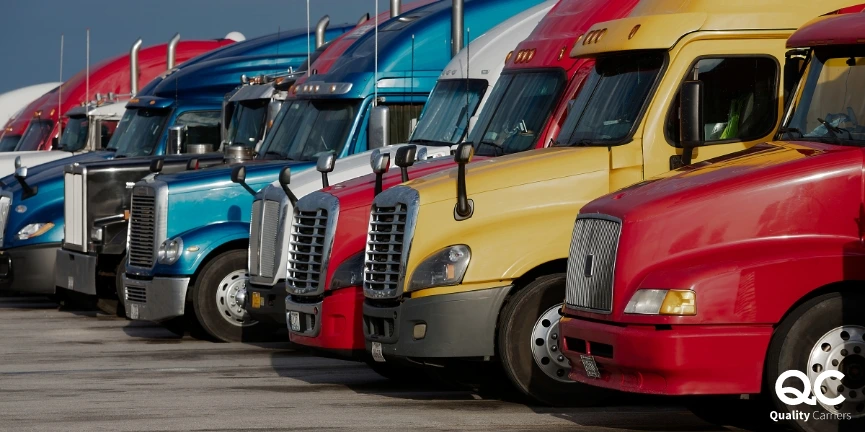
Thorough research into the trucking industry is essential to making informed decisions as you embark on your owner-operator career. Start by understanding the current market trends, demand for freight, and the competitive landscape. Look into different types of trucking services, such as flatbed, dry van, refrigerated, or specialized hauling, and assess which aligns best with your skills, interests, and resources. Stay updated on fuel prices, freight rates, and regulations, as these factors will directly affect your income and operations. Additionally, consider speaking to other owner-operators to gain insights into the challenges and opportunities within the industry.
3. Obtain Your Commercial Driver’s License (CDL)
A Commercial Driver’s License (CDL) is a legal requirement for driving large commercial vehicles. To become an owner-operator, you must pass a written exam and a driving skills test, which typically includes vehicle inspection, basic control skills, and a road test. It would help if you also met the physical qualifications to handle the job’s demands safely. A CDL is essential for operating as a professional truck driver and provides the legal foundation to start your owner-operator business. If you don’t have a CDL, consider enrolling in a certified truck driving school for the training.
4. Acquire the Necessary Equipment
As an owner operator, your truck is the heart of your business, so choosing the right equipment is critical. You’ll need to decide whether to buy or lease a truck based on your financial situation, long-term business goals, and the type of freight you plan to haul. If you purchase a truck, you gain full ownership, but it comes with higher costs. Leasing may offer lower initial costs and more flexibility, but you won’t own the truck outright. Additionally, consider investing in equipment that boosts your efficiency, such as GPS systems, communication tools, and safety technology. You’ll also need to budget for regular maintenance and potential upgrades to keep your truck in optimal condition.
5. Apply for the Required Truck Licenses
Securing the necessary licenses and permits is vital for legal operation. This includes:
- International Fuel Tax Agreement (IFTA): Allows you to file fuel taxes across multiple states or provinces.
- Unified Carrier Registration (UCR): Required if you operate in interstate commerce.
- Heavy Vehicle Use Tax (HVUT): A federal tax for vehicles weighing 55,000 pounds or more. Depending on the type of freight you haul and where you operate, you may need additional permits, such as special endorsements for hazardous materials or oversized loads. Keeping up with the licensing requirements will ensure your business complies with regulations and avoids penalties.
Compliance with these regulations will keep your business running smoothly and avoid potential fines or penalties.
6. Purchase Trucking Insurance
Insurance is vital to protect your business and manage risk. Owner-operators need a range of insurance coverage, including:
- Liability Insurance: It covers damage or injury to others in an accident.
- Physical Damage Insurance: Protects your truck from damage caused by accidents, theft, or natural disasters.
- Cargo Insurance: It covers the goods you’re transporting in case of damage or loss. The cost will depend on factors like your driving record, the type of freight you haul, and your truck’s value. Be sure to shop around for quotes and compare costs to find the coverage that meets your needs while remaining within your budget.
Proper insurance safeguards you from financial losses in accidents, cargo damage, or other unexpected events.
7. Find Ways to Cut Costs
Maximizing your profit requires keeping your expenses in check. Look for ways to reduce fuel consumption, minimize maintenance costs, and avoid unnecessary expenditures. Consider using fuel cards, optimizing your routes, and staying on top of regular truck maintenance to lower operational costs. Here are a few ways to cut costs:
- Fuel Efficiency: Optimize your routes, maintain your truck to ensure it runs efficiently, and use fuel cards to save on gas.
- Preventive Maintenance: Regularly service your truck to avoid costly repairs and reduce downtime.
- Minimize Deadhead Miles: Find backhauls to avoid driving without a load, as empty miles hurt profitability.
- Negotiate Rates: Build relationships with shippers and brokers to negotiate better rates, and consider focusing on high-paying, specialized freight. Cutting costs in critical areas will help you maintain a profitable margin while running your business smoothly.
8. Search for Jobs on Load Boards

Finding consistent work is critical for keeping your trucking business profitable. Load boards are online platforms where shippers post available loads, and owner-operators can search for jobs that fit their schedules and equipment. These boards offer access to various freight opportunities, allowing you to bid on loads and negotiate rates. However, relying solely on load boards can be competitive and may offer lower-paying jobs. Building long-term relationships with direct shippers and freight brokers can lead to more consistent, higher-paying contracts. Networking and maintaining good relationships will help you secure steady work over time.
Start Your Owner Operator Career with Quality Carriers
Ready to leap into a successful owner-operator career? Quality Carriers, a leader in the industry, offers the support and resources you need to thrive. With access to consistent freight, competitive pay, and a network of like-minded drivers, Quality Carriers can help you launch and grow your independent trucking business. Start your journey today with the backing of a trusted and established company.
Conclusion
Becoming an owner-operator requires careful planning, dedication, and support. By following these steps, you’ll be well on your way to building a successful career. With the right mindset and business strategy, you can enjoy the freedom and financial benefits of being your boss on the road.
FAQs
The startup cost for an owner-operator can vary widely but typically ranges from $50,000 to $100,000. This includes expenses like truck purchase or lease, insurance, permits, maintenance, and fuel. It’s essential to have a solid financial plan and some savings to cover initial costs and potential emergencies.
Running your own trucking business involves more than just driving. It would help if you manage finances, including accounting, taxes, and cash flow. Using bookkeeping software, working with an accountant, and staying organized with receipts and expenses can help you maintain your business’s financial health.
Owner-operators typically earn between $50,000 to $100,000 annually after expenses, but actual earnings depend on factors like freight rates, operational costs, and the efficiency of managing the business.
